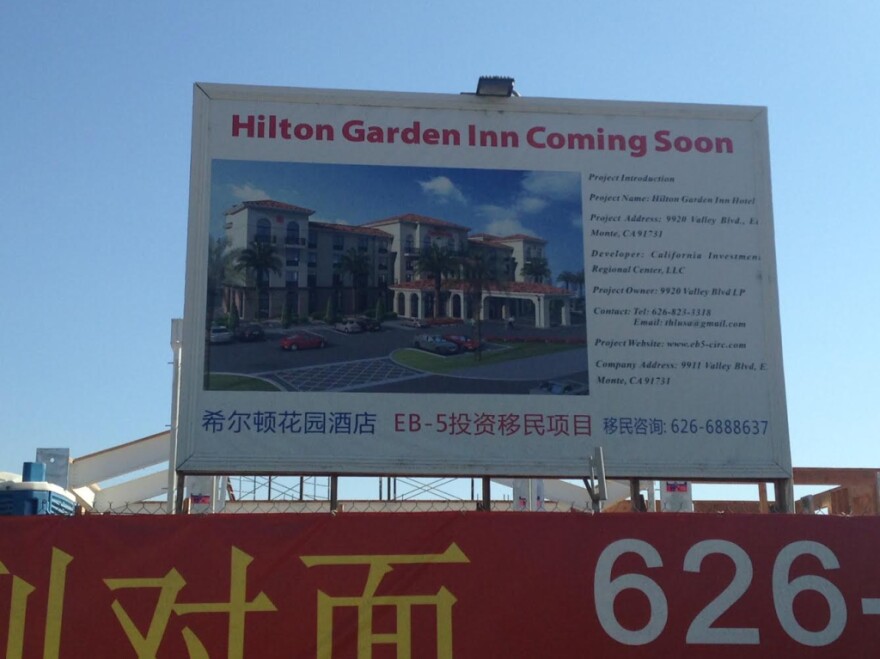This story is free to read because readers choose to support LAist. If you find value in independent local reporting, make a donation to power our newsroom today.
This archival content was originally written for and published on KPCC.org. Keep in mind that links and images may no longer work — and references may be outdated.
Immigrant investor visa program fees could rise

Would-be immigrant investors seeking visas and the businesses that benefit from their dollars may need to pay significantly higher fees under a proposal from the federal government.
EB-5 is an immigrant visa for foreign investors who invest a minimum of $500,000 in a U.S. business and create at least 10 U.S. jobs. The investors can then apply for conditional legal status; if the project they invest in succeeds, they can get on a path to citizenship.
The controversial program has been extended twice in the past year, without the steeper investment minimums and other restrictions that some lawmakers have proposed.
The EB-5 program has proven especially popular in recent years with wealthy immigrants from China, whose money has been poured into developments in the San Gabriel Valley and other parts of Southern California.
But the program, which began in 1990, has also drawn its share of controversy. A government audit last year concluded that federal officials did not have the resources to prevent what has become relatively widespread fraud.
The proposed fee increases are part of a broader plan proposed by the U.S. Citizenship and Immigration Services, which posted the proposed hikes in the Federal Register last week. The cost of other services could also go up. For example, the fee to apply for U.S. citizenship could rise by about 8 percent to $640 from the current $595.
The increases to EB-5 related services are among the steepest fee hikes proposed. Under the USCIS proposal, would-be immigrant entrepreneurs would need to pay more than twice as much to file their application, from the current $1,500 to $3,675.
Developers and other businesses that benefit from the investors' dollars would need to pay more to participate in the program: an application to become a designated EB-5 “regional center” would cost nearly three times as much as it does now, rising from $6,230 to $17,795.
Most EB-5 "regional centers" are private businesses whose projects are vetted by the federal government. These firms are authorized to collect EB-5 investments, and help move along visa applications for the investors.
Among the changes proposed in the federal fee schedule is a new fee of $3,035 that regional centers must pay for annual certification. This cost wasn't included before.
The proposed increases are subject to a 60-day public comment period. They would not take effect until after a final rule is published in the Federal Register.
Howard Ting of the regional center YK America in El Monte said while the proposed fee increases aren't good news, they aren't that much more in the greater scheme of things.
"I don't think it's that much of a difference," said Ting, YK's vice-president. "If they raised it 10 times, maybe."
Ting, whose long-established regional center specializes in development, said EB-5 regional centers must spend much more on economists, immigration and business attorney fees and other costs for their investment projects.
"You have to put together a package, and that could cost $100,000 to $200,000," Ting said.
He said he doesn't think many investors will be put off by the fee increases.
However, one change that's been proposed by lawmakers might prove a deterrent: It would raise the minimum investment for an EB-5 visa from $500,000 to at least $800,000 for areas considered a "Targeted Employment Area" or TEA, where unemployment is high. The minimum for non-TEA investments would also rise from the current $1 million.
Congress could vote on that change in September when the EB-5 program is up for renewal.







